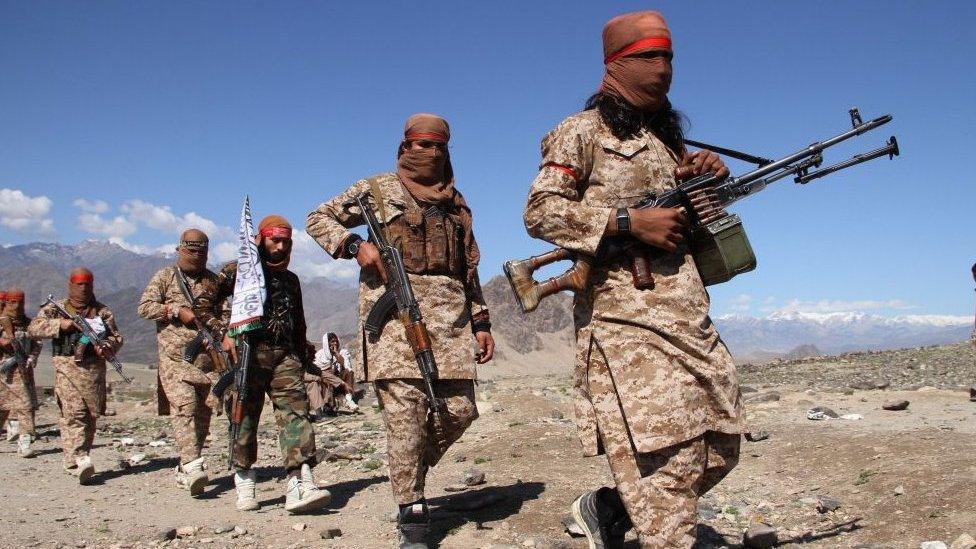Afghanistan: What's life like for children in the country?
- Published
- comments
Afghanistan: The children working instead of going to school
More and more Afghan children are having to go to work to help support themselves and their families.
This is because the economy in Afghanistan is in a bad way with few jobs and little money around.
Many people have not been paid salaries for months, and that has meant many children and their families do not have enough food to eat, so some of them have to work instead of going to school to earn money.
Newsround has been hearing from some children there to find out more about what life is like for them.
Why is this happening?
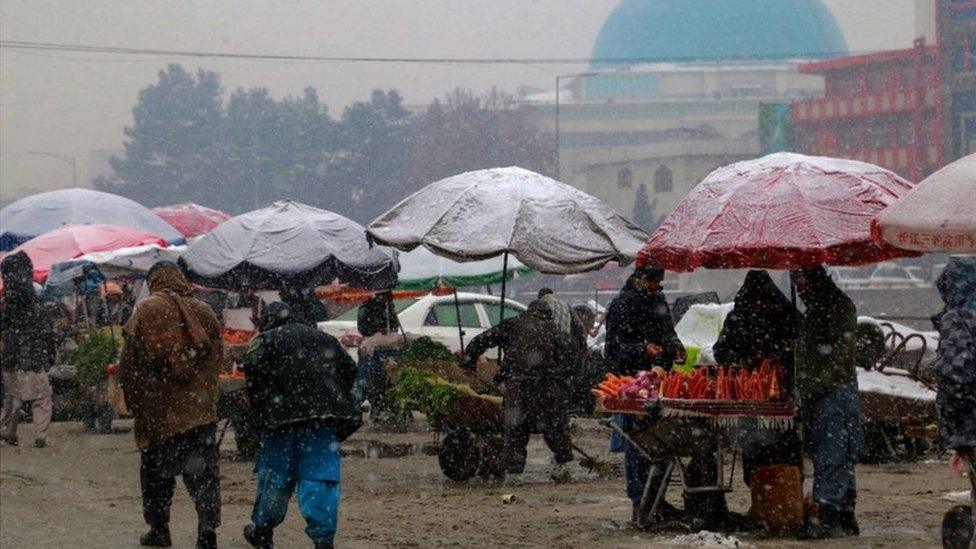
Experts are warning that Afghanistan is facing a humanitarian crisis this winter
Afghanistan is among the poorest countries in the world, according to data from the World Bank.
Since US and UK troops left Afghanistan in 2021, after a long war, and the Taliban came back to power, international aid funding to the country has been largely stopped.
Rules and restrictions - called sanctions - which affect what the country can bring in or sell to the rest of the world, have also been put in place, and as a result unemployment is rising.
Many children and their families do not have enough food to eat and the winter months could make things worse.
A lack of water caused by several droughts in the country has meant fewer crops, and clean water pipes also freeze during the cold months.
According to the UK based charity the Red Cross, nearly 23 million people in Afghanistan are currently experiencing high levels of food shortages, and according to the United Nations one million children are at risk from severe malnourishment.
It's left lots of families needing to earn extra money.
Children working to support their families
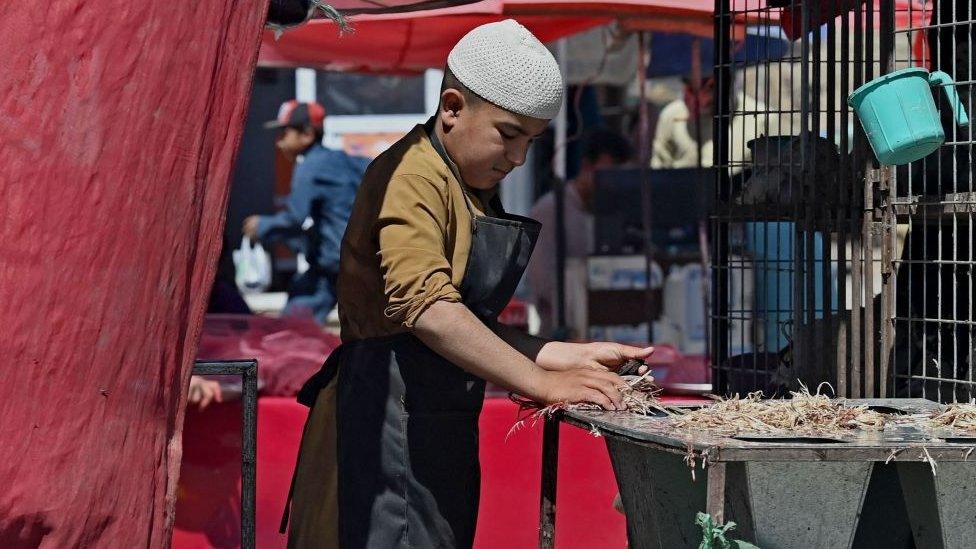
Even before the Taliban took control of the country last summer, hundreds of thousands of Afghan children were forced to earn a living because of widespread poverty.
In 2018, the United Nations reported that more than two million children in Afghanistan, between the ages of six and 14, performed some type of child work.
That could be anything from working in a market, to shining shoes or picking through rubbish.
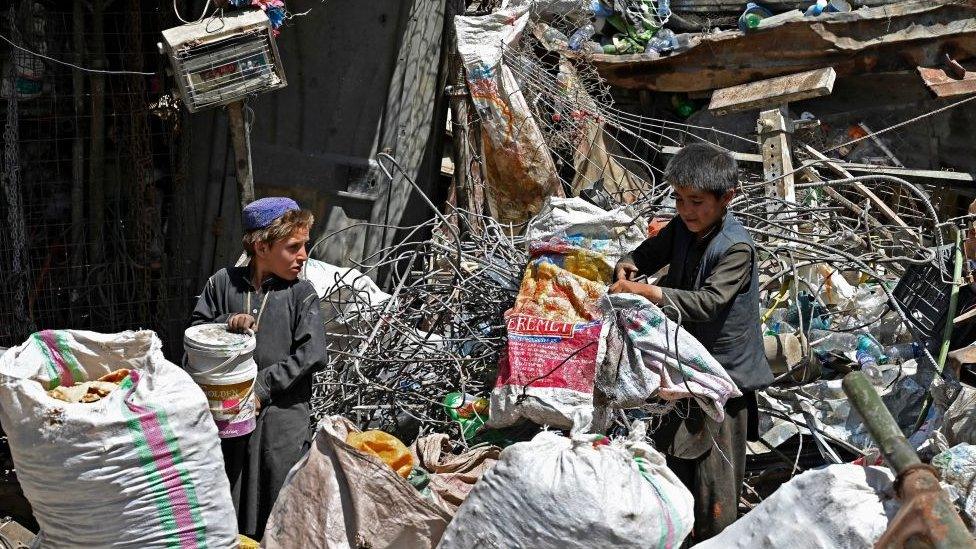
The children's charity Unicef says that before to the COVID-19 pandemic, various factors - including poverty, cultural practices and lack of school facilities - were keeping 4.2 million children out of school.
But according to the BBC team in Afghanistan, the current situation means even more children are having to work.
Pervez: 'Everything has become expensive'
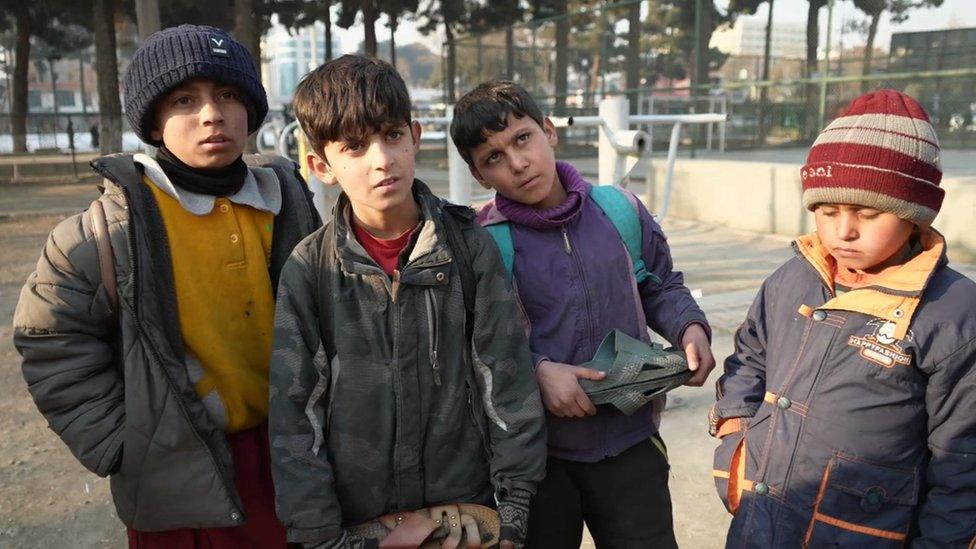
Afghan children are having to work in order to earn money for their families
Pervez, 13, and his cousins have recently started polishing shoes to try to earn money for their family.
"When my dad stopped working, I had to stop going to school so I could earn some money. Everything has become expensive," he explained.
"I get so sad when people don't let us shine their shoes. Then we don't earn enough to buy two or three pieces of bread. Sometimes we go home empty-handed if we didn't get any work all day," he added.
Pervez knows that school is important and says that when his dad finds work he hopes to go back to school: "We should be in school. The good thing about school is that it can help us become something."
The cousins hope to be engineers, doctors or pilots.
Girls' education in Afghanistan
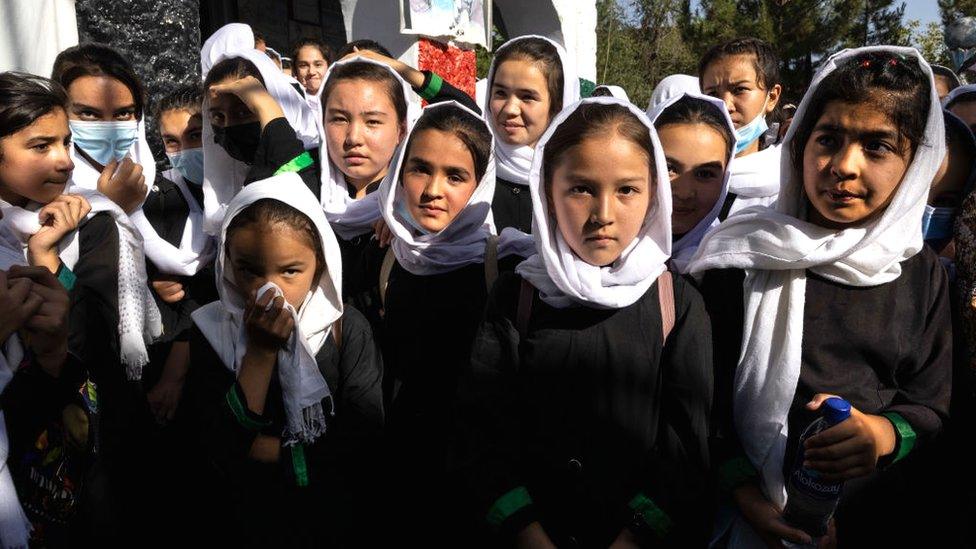
Girls were previously banned from attending school in Afghanistan
If their families have enough money, many boys can go to school if they chose to, but that isn't the case for girls.
When the Taliban lost control of the country in 2001, girls were able to get an education at school, study at university and work and women were able to work and to take on senior roles like judges and politicians in Parliament.
The Taliban follow an extreme version of Islam and when they were last in power in Afghanistan - between 1996 to 2001 - they enforced strict rules which meant that women and girls couldn't do a lot of things, such as go to school or go to work.
Many people were worried that when the Taliban came back last year they bring those strict rules back, despite them saying that the rights of women in Afghanistan will be respected "within the framework of Islamic law".
Afghanistan: The teenage girls going to secondary school
Since taking power, the Taliban have told most female workers to stay at home while secondary schools are open only to boys and male teachers.
The Taliban have said that the restrictions are "temporary" and only in place to ensure all workplaces and learning environments are "safe" for women and girls.
But international agencies say it is difficult to know what is happening around the country.
Help if you are feeling worried
Is any help being provided?
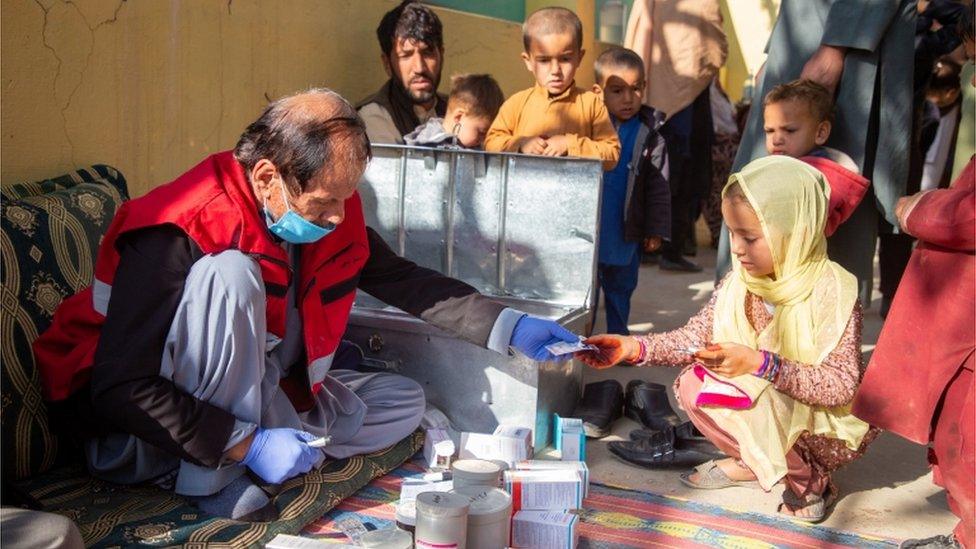
Charities in the country are providing medicine to those in need
A number of charities from around the world are working to help people in the country.
Last month, several UK charities including Oxfam, Christian Aid, Islamic Relief and the British Red Cross joined together to ask the public to donate money.
The UK government also promised to double the amount they donated by the public, up to a total of £10 million.
Emergency food, winter survival kits and clean drinking water are being delivered to people in areas worst affected by severe food shortages and to help keep families warm this winter.
International donors have already agreed to transfer over £200 million to United Nations food and health services in Afghanistan to help the crisis.
If you cannot see this interactive element, click here.
- Published8 September 2021

- Published18 August 2021

- Published17 August 2021
